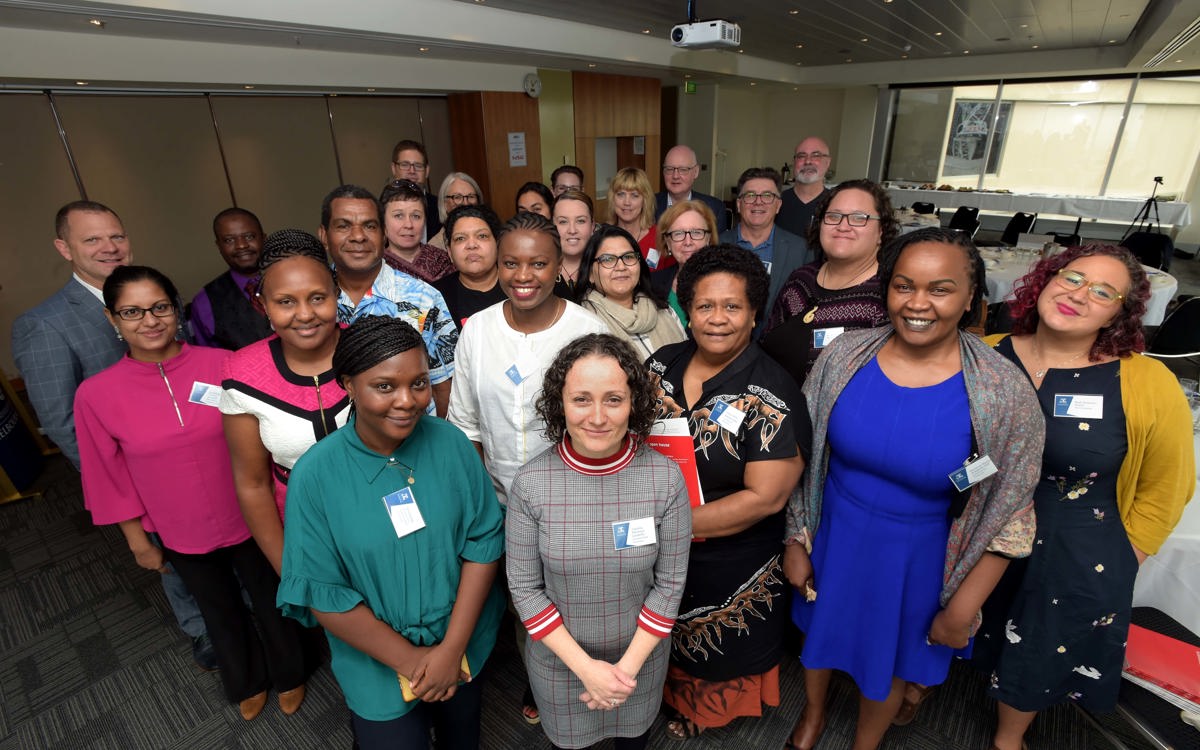
This week, the ACU brought universities from every region of the Commonwealth together to launch the new ACU Commonwealth Peace and Reconciliation Network at the University of Melbourne, Australia.
Professor Shaun Ewen, Pro Vice-Chancellor (Indigenous) of the University of Melbourne, will be the first chair of this new multidisciplinary network, which will explore the role of universities in truth-telling and reconciliation, both within their institutions and as part of their wider communities.
Commonwealth countries confront a range of issues in this area, including the legacy of settler colonialism, post-conflict situations, and unresolved civil tensions. This three-day event was a chance to identify potential areas for inter-university collaboration, including decolonising the curriculum, equitable research partnerships, and how to ensure that indigenous populations have a greater sense of inclusion and recognition within higher education.
'Universities across the Commonwealth have a vital role to play in continuing to address the legacies of the past, and in building fairer societies. The ACU Commonwealth Peace and Reconciliation Network will create unique opportunities for Commonwealth universities working in the fields of peace, truth, and justice to work together and share approaches to truth-telling and reconciliation in society and within universities themselves' said Professor Shaun Ewen.
Delegates took part in debates and discussions around post-colonial identity, inclusion, gender, mental health, and institutional reform – with one delegate from Fiji National University commenting 'When a house is totally self-destructing, we can't always resolve problems from within. The presence of this network might just bring about strength, and ideas about how we can work together.'
For many it was an eye opener as much as it was a forum for cultural exchange. 'A key take away for me is the importance of staying rooted and grounded in who I am, and the African that I am. To be honest, I never thought I'd be at a forum where people who are not African would be speaking a native language and taking pride in that. It completely blew me away and renewed a sense of pride in my own identity' said a delegate from United States International University, Kenya.
While another delegate from York University in Canada spoke about the importance of acknowledging Indigenous peoples: 'Another thing that has become clear to me is that peace and reconciliation is not an end point, it's a process... In many countries where indigenous people have been colonised, in order to think about peace and reconciliation we have to begin with the initial encounters that led to conflict.'
Alex Wright, ACU Head of Policy and Public Affair – who is the lead on this new ACU initiative – said: ‘This initial meeting of the Commonwealth Peace and Reconciliation Network has been a great success, illustrating what we can achieve when we convene our members. The formation of new collaborative working groups and research partnerships will enable this diverse group of universities to continue working together and share knowledge and best practice to advance peace and reconciliation across the Commonwealth.’
Dr Joanna Newman, ACU Chief Executive and Secretary General, added: 'I'm proud of this new network, which supports the core values and principles of the Commonwealth. Universities have a crucial role to play in keeping minds and borders open. By bringing together such a diverse group of universities from countries and regions that have experienced violent conflict, colonial oppression, and the eradication of indigenous languages and rights, we will provide a platform for open and honest discussion, which in turn will lead to advocacy and positive action.'
As a Commonwealth organisation, the ACU recognises the colonial legacy of the Commonwealth. The Commonwealth Peace and Reconciliation Network aims to realise the values we now share as a modern Commonwealth, through global dialogue and collaboration.
- To take part, contact communications@acu.ac.uk
- Read the write-up in Times Higher Education - 'How universities can help peace and reconciliation to thrive'
